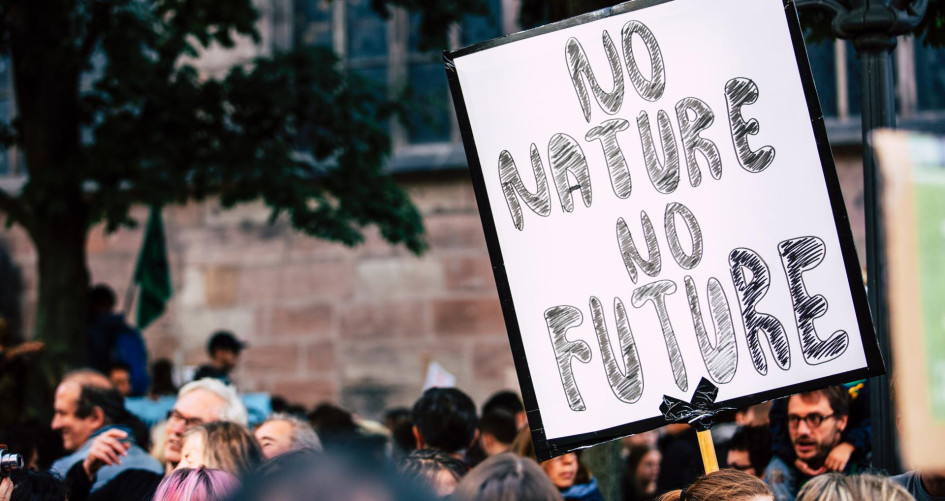Climate action is most effective when all citizens are involved and able share their views. This understanding underpins Action for Climate Empowerment (ACE), mandated in Article 6 of the UNFCCC and Article 12 of the Paris Agreement. ACE is made up of six interdependent elements: climate education, training, public participation, public access to information, public awareness, and international cooperation.
Why is public participation important to climate action?
Public participation and access to information provides citizens with the tools and opportunities to play an active, meaningful role in climate action. This is based on a key point: that those affected by a decision have a right to be involved in the decision-making process. Public participation also enhances the quality of decisions, since they often result in a broad consensus and a high rate of compliance with new decisions.
Public participation has led to significant outcomes within the UNFCCC process. The Paris Agreement affirms the importance of all elements of ACE, and the Katowice Climate Package calls on Parties to include ACE in their Nationally Determined Contributions (NDCs). Some countries have truly incorporated public participation into their NDC planning process:
- Argentina’s second NDC was a collaboration between 15 working groups set up by the national public administration as well as meetings with different sectors of society.
- The Dominican Republic’s 2020 NDC was published as a draft for public feedback, followed by a national consultation workshop that included representatives from academia, civil society and the private sector.
- Peru’s ‘let’s talk about the NDCs’ participatory process was a great success, featuring a diversity of stakeholders, including indigenous groups, women, and youth.
Without these participatory processes, the NDCs submitted to the UNFCCC may not accurately reflect the realities of climate change and the needs of citizens on the ground.
The Aarhus Convention and why it matters
The Aarhus Convention protects public participation, public access to information, and access to justice in environmental matters, and was ratified by 46 states and the European Union. Ratified in 2001, the convention was a pioneering agreement and its implementation has demonstrated public participation and access to information in practice. Countries which signed it have introduced Freedom of Information acts and requirements for public participation in planning processes, among other high-level protections.
- In Cantabria, Spain, a government initiative engaged with the public regards the implementation of the Water Framework Directive to reach the broadest consensus on the future of the project.
- In 2009, Belgium held a Citizen’s Conference on the Nuclear Waste Plan, involving a diverse group of the public.
- In 2012, Armenia held an innovative initiative using universities as intermediaries for public consultations on GMOs.
- In Lithuania in 2002, Vilnius County Council approved the construction of a seven-million ton landfill just 500 yards from homes. Citizens and NGOs argued that public participation was not sufficiently promoted, and the Aarhus Compliance Committee found Lithuania in non-compliance. As a result, the country introduced legislation to improve the manner of informing and engaging with the public on decision-making processes.
What about COVID?
The COVID-19 Pandemic has certainly affected the ability of citizens to participate in the environmental decision-making process. Some governments and organisations have been innovative in holding online participatory forums, such as Canada’s environmental regulators switching to webinars to ensure public participation. The United Nations Economic Commission for Europe (UNECE), under which the Aarhus Convention is housed, has been explicit in its recommendations that there should be as much in-person dialogue as possible, given the fact that not everyone has access to online technologies.
Public participation in the future
We’ve seen how public participation and public access to information are important to climate action. But how do we ensure both of these rights are protected? It is hoped that the Escazú Agreement (the first legally binding instrument in the world to include provisions on environmental human rights defenders) will strengthen the protection of public participation, public access to information, and access to justice in the Latin American and Caribbean region. The Agreement, which was ratified by eleven countries in Latin America and the Caribbean, and was brought into force on Earth Day last month, is the world’s first to include provisions on the protection of human rights defenders in environmental matters. This is a big step forward, as many countries in the region have crimes against environmental defenders.
Under the frameworks mentioned above, and many other avenues to public participation, there have been countless examples of citizens requesting information on and actively participating in decision-making processes regarding the environment and climate change. For effective climate action, the world needs everyone’s active participation.
What can I do about it?
- Find out if your country has ratified the Aarhus Convention or (if you are in Latin America, or the Caribbean) the Escazú Agreement. These legal frameworks protect your rights of participation in environmental decision-making.
- Every country has an National ACE Focal Point who coordinates the country’s ACE-related activities. Contact them and find out what they are doing.
- Find out where to access published environmental information, and how to request additional environmental information from your government
- Participate in citizen surveys such as the global survey launched ahead of the Paris Agreement, to have your voice heard.
- Many non-Party stakeholders, such as NGOs, are participating in international decision-making on climate change. Find out who is working in your country or region and what they are advocating. Maybe become a member!
- Many countries have different mechanisms for public participation, such as public hearings, forums, consultations, which they have committed to in their NDCs. Some, including the UK, the Netherlands, and Estonia, have established climate-specific institutions for public participation. Find out what your country has in place and get involved!
